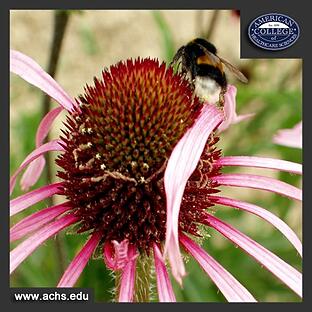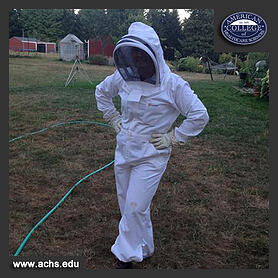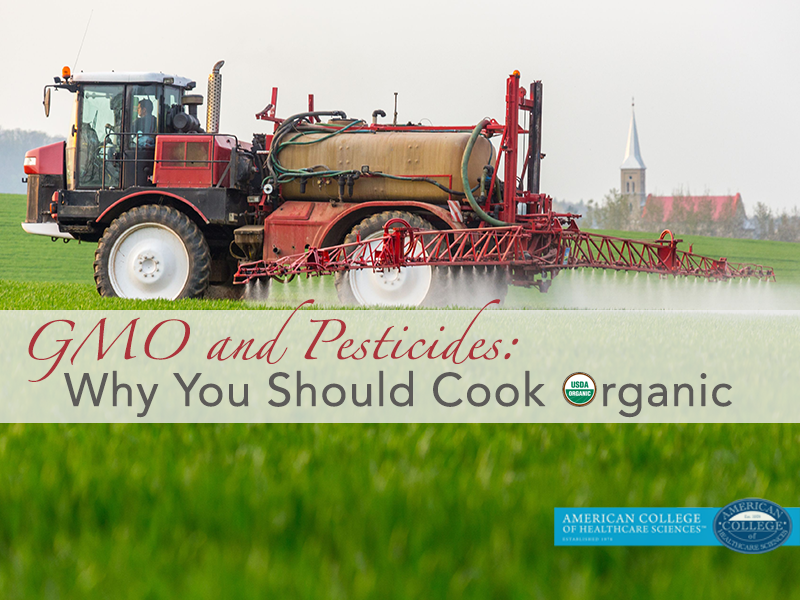 The holistic health field is certainly buzzing with excitement lately. People are choosing to live natural and holistic lifestyles: adopting exercise, aromatherapy, holistic nutrition (I’m looking at you, kale junkies!), and other practices as preventative measures in order to live fuller, healthier, and happier lives! But you don’t often hear too much about natural methods for detecting illness. This is why I was so thrilled to see the abcnews.com report on a new method that may allow honeybees to sniff out cancer![1]
The holistic health field is certainly buzzing with excitement lately. People are choosing to live natural and holistic lifestyles: adopting exercise, aromatherapy, holistic nutrition (I’m looking at you, kale junkies!), and other practices as preventative measures in order to live fuller, healthier, and happier lives! But you don’t often hear too much about natural methods for detecting illness. This is why I was so thrilled to see the abcnews.com report on a new method that may allow honeybees to sniff out cancer![1]
That’s right. You read that correctly. Those little honey-makers have an extraordinary sense of smell; honeybees are already used to sniff out drugs and landmines. And Susan Soares, founder of the “Bee’s Project,” is trying to harness that power. Soares claims that “[b]ees can be trained within 10 minutes using Pavlov’s reflex to target a wide range of natural and man-made chemicals and odours, including the biomarkers associated with certain diseases.”[2] This natural method could potentially provide early detection of diseases, such as lung and skin cancer, tuberculosis, and diabetes.[3]
Soares has developed a glass dome with two enclosures that would house the trained bees for the short time it would take to perform the breath assessment. The user then breathes into the smaller chamber, and the bees will flock to it if they smell the odor they’ve been trained to detect.
As a beekeeper myself, this sounds pretty darn amazing! But as Richard Pollack, entomologist and chief scientific officer of IdentifyUs in Boston points out in the article on abcnews.com, Soares’ cancer-sniffing honeybee dome still needs to go through many independent studies, testing both the sensitivity and accuracy, before it can be introduced to the public.
Whether or not this method will prove to work over the coming years, honeybees are still an invaluable part of our ecosystem. For example, how was your breakfast this morning? If you ate a balanced meal, one in every three mouthfuls of food you ate was directly or indirectly benefited from honeybee pollination.[4] Honeybees play a huge role in specialty crop production of certain fruits, veggies, and tree nuts. Almonds, for example, are a superfood, and almond crops are COMPLETELY dependent on honeybee pollination in the U.S.! [5] While I'm an advocate of diversified organic farming, not industrial monoculture, almonds are just one crop that relies on honeybees. Without honeybees, certain crops would not be around.
This is why it’s important to be aware of honeybee Colony Collapse Disorder (CCD). The U.S. Department of Agriculture describes the defining characteristic of Colony Collapse as “the disappearance of most, if not all, of the adult honey bees in a colony, leaving behind honey and brood but no dead bee bodies.”[6] This poses a very serious issue for the health of bees, our agricultural industry, and the overall ecosystem.
 So what is causing this mysterious disorder in bee colonies? According to the USDA, there are no known causes or cause for CCD, even though there have been many claims made in the scientific and general media. However, a 2010 CCD Steering Committee (operated out of the USDA) Colony Collapse Progress Report cited that pesticides could be contributing to this problem.[7] In fact, I was enrolled in a bee counting exercise as a Master Gardener that shocked me. This inevitably led to my adding two bee hives to my sustainable lavender farm which has now grown to three healthy, naturally raised hives (there I am to the left in my beekeeping suit). I use no chemicals on my hives and save the bees own honey to feed them in the winter. No white processed sugar for MY bees!
So what is causing this mysterious disorder in bee colonies? According to the USDA, there are no known causes or cause for CCD, even though there have been many claims made in the scientific and general media. However, a 2010 CCD Steering Committee (operated out of the USDA) Colony Collapse Progress Report cited that pesticides could be contributing to this problem.[7] In fact, I was enrolled in a bee counting exercise as a Master Gardener that shocked me. This inevitably led to my adding two bee hives to my sustainable lavender farm which has now grown to three healthy, naturally raised hives (there I am to the left in my beekeeping suit). I use no chemicals on my hives and save the bees own honey to feed them in the winter. No white processed sugar for MY bees!
If pesticides are the cause of CCD, then there is definitely something we humans can do to help! We can make every attempt to support sustainable farming practices. Make sure to buy both Certified Organic whole foods and non-GMO products. We can also help support local beekeepers by purchasing locally grown organic honey—which can help support allergy relief! These practices help honeybees, support a healthy ecosystem, and send the message that chemical pesticides are unacceptable. Here at the American College of Healthcare Sciences, our classes in holistic nutrition and wellness cover these lifestyle habits and their benefits in great detail, so check them out!
Regardless if honeybees can detect cancer, they are certainly a species we should make every attempt to protect. If we want to live holistic lifestyles here on earth, we have to learn to nurture a holistically healthy and sustainable planet.
Do you think we should use honeybees to sniff out cancer and other diseases? Leave a comment with your thoughts!
Click the button below for free offers, fun eBooks, and information about the American College of Healthcare Sciences accredited online programs!
This article is for informational purposes only. It is not intended to treat, diagnose, cure, or prevent disease. This article has not been reviewed by the FDA. Always consult with your primary care physician or naturopathic doctor before making any significant changes to your health and wellness routine.
[1] Neporent, L. (2013, November 25). Honeybees trained to sniff out cancer. ABC News. Retrieved from http://abcnews.go.com/blogs/health/2013/11/25/honeybees-trained-to-sniff-out-cancer/
[2] Soares, S. (2011). Bee’s project. Retrieved from http://www.susanasoares.com/index.php?id=56
[3] Ibid.
[4] USDA. (2013, December 2). Honeybees and colony collapse disorder. Retrieved from http://www.ars.usda.gov/News/docs.htm?docid=15572#public
[5] Ibid.
[6] Kaplan, K.J. (2012). Colony collapse disorder: an incomplete puzzle. Agricultural Research, 60. 4-8. http://www.ars.usda.gov/is/AR/archive/jul12/colony0712.htm
[7] CCD Steering Committee (2010). Colony collapse disorder progress report. Washington, D.C: The U.S. Department of Agriculture (USDA). http://www.ars.usda.gov/is/br/ccd/ccdprogressreport2010.pdf






